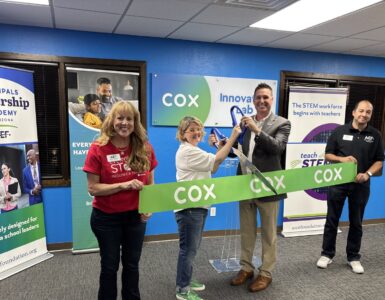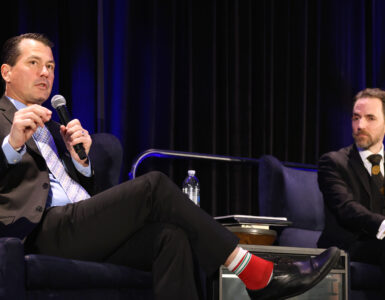Prescott, the mile-high Arizona town of about 42,000 residents, is known for its pioneer history, cool climate, decadent Christmas celebrations, and its proximity between Phoenix and the Grand Canyon. But the quaint pine-tree bedecked western town also houses one of the country’s most elite flight schools, Embry Riddle.
Known all over as a premier destination for would-be pilots and aviation sci-tech engineers and innovators, the flight school has grown in prominence for its course offerings in cyber intelligence and safety, areas that have found a place in the tapestry of American governmental operations.
Now, the aeronautical university is getting another tip of the cap to its position as a standard bearer for aviation as Eviation, an Israeli-based startup leading the charge in the industry’s first all-electric aircraft, has selected Prescott for its U.S. corporate headquarters in part because of Embry-Riddle’s impact.
The Israeli tech company took notice of the position Embry-Riddle holds in the aviation tech industry and chose the surrounding area as the ideal place to plant its international flag. Eviation will open an office at the former Guidance Aviation building located at the Prescott Municipal Airport this month where it will continue to develop its fleet of all-electric aircraft.
Prescott, out of all the cities and towns and wide-ranging areas in the country, called out to the aircraft tech company for a number of reasons.
“We’ve expanded into Prescott because we recognize that the U.S. represents a high-growth, near term target market given its many regional transit corridors and abundance of approved airstrips,” says a spokesperson for Eviation.
According to a press release, Eviation also called out Prescott “as an optimal location for its U.S. headquarters given the area’s skilled workforce and high-density altitude, an ideal environment for test flights. Prescott is poised for growth from the aviation sector as Eviation joins SkyWest Airline’s United Express service in its move to the area.”
Already the company touts two models of planes that have piqued the interest of many in the industry. Alice, it’s nine-passenger model, holds a range of up to 650 miles on one charge, zipping along the skies at about 275 MPH. The second model is the company’s autonomous delivery plane, the Orca. The sleek, low-cost plane is an answer to the growing interest in airborne delivery. Both planes are designed with lightweight materials and state-of-the-art battery innovation.
Eviation was formed by CEO Omar Bar-Yohay and two other Israeli entrepreneurs in 2015. Earlier this year the self-funded company linked up with Kokam, a leading battery manufacturer based in South Korea, for a battery supply deal worth over $1 million. Smaller airplanes, like the Alice, are likely to be electrified years before large commercial jets, as batteries are heavy and store far less energy than jet fuel.
Eviation burst onto the scene in June of 2017 after a smash-hit debut at the Paris Air Show. Its all-electric, zero-emission regional aircraft (Alice) wowed audiences with its whisper quiet engine, self-flying capabilities and three electric motors. It plans to appear at the Paris Air Show in 2019 with the possibility of debuting Alice for commercial use in 2021.
















Add comment